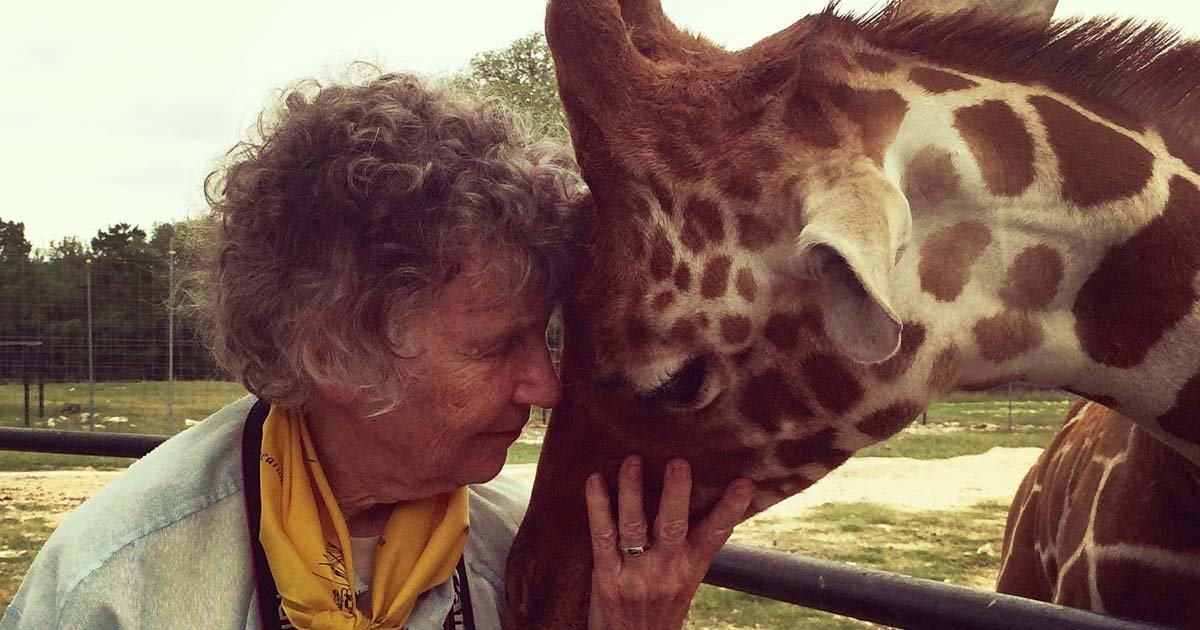Ecologies III
April: Ecologies III, FLMTQ Releases 287-290
During the month of April Filmatique presents Ecologies III, a series of films attentive to issues of nature and sustainable living, ecological restoration, the global food system, and animal life.
Greta Schiller's The Land of Azaba documents the largest ecological restoration project in western Europe, while Sandy McLeod's Seeds of Time offers a portrait of the man preserving plant genes to stave off humankind's future extinction. Jennifer Baichwal's Manufactured Landscapes offers color and context to the industrial vistas behind Edward Burtynsky's famed photographs; Alison Reid's The Woman Who Loves Giraffes delves into the legacy of Anne Innis Dagg, a pioneer of animal conservation at a time when women faced often insurmountable barriers to scientific study.
Comprised entirely of the works of female documentarians, the third edition of Filmatique's Ecologies series aims to attune our perception to the causal patterns of human behavior on the natural world, and the power of acting locally. If the present ecological crisis can be conceptualized as a crisis of human imagination—a collective failure to see ourselves as capable of such widespread damage, much remedy—these films offer new lenses with which to view our current moment, and the multitude of paths forward.
//
The Land of Azaba, Greta Schiller (2020)
The Land of Azaba, Greta Schiller / United States, 2020
The Campanarios de Azaba Nature Reserve in Spain is one of the largest remaining tracts of wild nature in western Europe. Over the past centuries, it has fallen victim to exploitation—in the forms of hunting and farming—and neglect. Today it is the site of an ambitious rewilding project that seeks to restore the habitat of many rare and endangered species such as ancient oaks and insects, aurochs and horses. In doing so, the scientists and farmers involved endeavor to create an inspirational case study in combating biodiversity loss and, ultimately, climate change.
Immersing the spectator in an arcadian landscape where human and non-human life co-exist, The Land of Azaba documents a radical experiment of ecological restoration. Greta Schiller's fifth documentary premiered at Valladolid and Mystic Film Festival, where it won Best Documentary Cinematography.
Manufactured Landscapes, Jennifer Baichwal (2006)
Manufactured Landscapes, Jennifer Baichwal / Canada, 2006
Photographer Edward Burtynsky has won international accolades for his large-scale photographs of 'manufactured landscapes'—sites of industrial waste and ruin. In an ethically ambivalent fashion, his work seeks to find beauty in quarries, recycling yards, factories, mines, and dams, sites of human intervention, the debris of so-called industrial progress. Filmmaker Jennifer Baichwal accompanies Burtynsky on a trip to China to document not only his artistic process, but to expand his meditations on humanity's impact on the planet beyond the frame.
Beginning in a virtuoso tracking shot through an endless factory floor, and delving into the vicissitudes of industrialization's mutual, albeit asymmetric, exploitation of low-wage laborers and natural resources, Manufactured Landscapes paints a nuanced picture of the ecological toll of the way we live now. Jennifer Baichwal's fourth documentary premiered at Sundance, Rotterdam, HotDocs and the Toronto International Film Festival, where it won Best Canadian Feature Film.
Seeds of Time, Sandy McLeod (2015)





